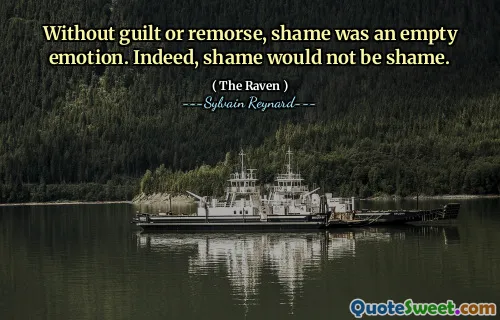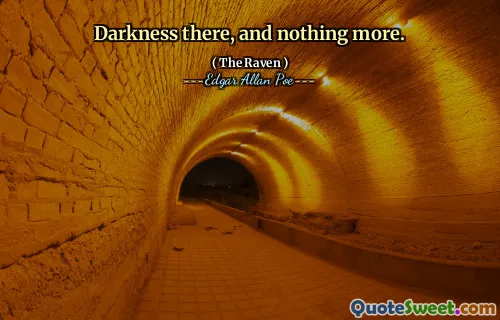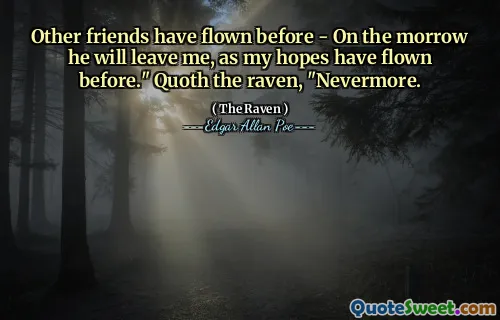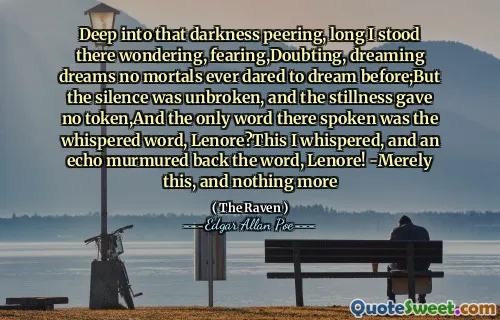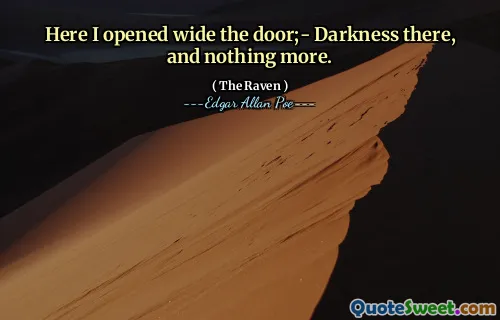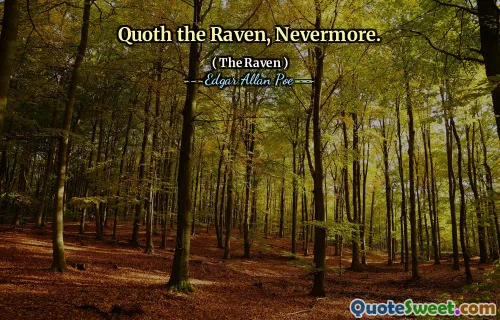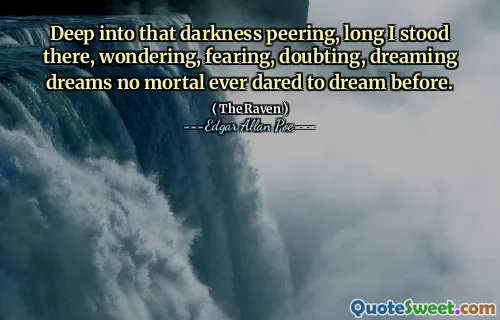The Raven is a narrative poem by Edgar Allan Poe that explores themes of grief, loss, and the supernatural. The poem begins with a melancholic atmosphere as a man mourns the death of his beloved Lenore. One night, as he is immersed in sorrow and reading, he hears a gentle tapping at his chamber door. Initially dismissing it as a visitor, he soon realizes it is a mystical presence that will profoundly affect his mental state. As he opens the door, he finds nothing but darkness. However, the tapping continues, leading him to discover a raven that enters his room. This raven, sitting upon a bust of Pallas Athena, speaks just one word: "Nevermore." This repeated refrain becomes a haunting echo throughout the poem, reflecting the man's increasing despair and descent into madness. The raven symbolizes the permanence of death and the futility of hope, further deepening the man’s anguish. Throughout the poem, Poe masterfully creates a somber and eerie mood, employing rich imagery and musical language. The interplay between the man and the raven showcases his internal struggle as he grapples with the loss of Lenore and the emptiness that remains. Ultimately, The Raven captures the essence of sorrow and the relentless nature of grief, leaving a profound impact on the reader as it delves into the darker corners of the human psyche.
The Raven is a narrative poem by Edgar Allan Poe that explores themes of grief, loss, and the supernatural. The poem begins with a melancholic atmosphere as a man mourns the death of his beloved Lenore. One night, as he is immersed in sorrow and reading, he hears a gentle tapping at his chamber door. Initially dismissing it as a visitor, he soon realizes it is a mystical presence that will profoundly affect his mental state.
As he opens the door, he finds nothing but darkness. However, the tapping continues, leading him to discover a raven that enters his room. This raven, sitting upon a bust of Pallas Athena, speaks just one word: "Nevermore." This repeated refrain becomes a haunting echo throughout the poem, reflecting the man's increasing despair and descent into madness. The raven symbolizes the permanence of death and the futility of hope, further deepening the man’s anguish.
Throughout the poem, Poe masterfully creates a somber and eerie mood, employing rich imagery and musical language. The interplay between the man and the raven showcases his internal struggle as he grapples with the loss of Lenore and the emptiness that remains. Ultimately, The Raven captures the essence of sorrow and the relentless nature of grief, leaving a profound impact on the reader as it delves into the darker corners of the human psyche.
More »
Today Birthdays
1729 -
Edmund Burke
1949 -
Haruki Murakami
1954 -
Howard Stern
1876 -
Jack London
1993 -
Zayn Malik
1951 -
Kirstie Alley
1863 -
Swami Vivekananda
1923 -
Alice Miller
1987 -
Naya Rivera
1825 -
Brooke Foss Westcott
1944 -
Joe Frazier
1951 -
Rush Limbaugh
1964 -
Jeff Bezos
1978 -
Jeremy Camp
1628 -
Charles Perrault
1856 -
John Singer Sargent
1970 -
Kaja Foglio
1953 -
Rick Santelli
1986 -
Gemma Arterton
1968 -
Raf Simons
1958 -
Christiane Amanpour
1966 -
Olivier Martinez
1996 -
Ella Henderson
1917 -
Maharishi Mahesh Yogi
1949 -
Ottmar Hitzfeld
1928 -
Ruth Brown
1968 -
Heather Mills
1946 -
George Duke
1968 -
Rachael Harris
1923 -
Ira Hayes
